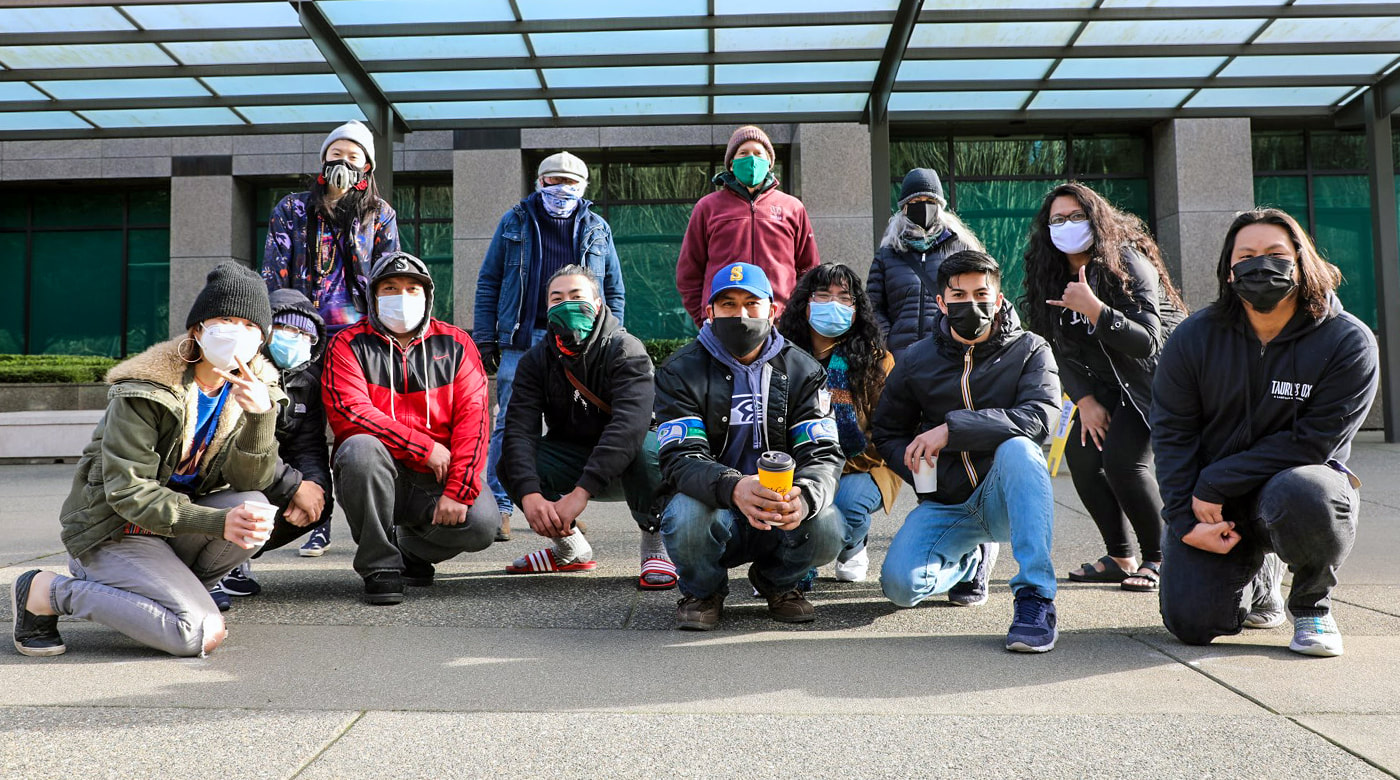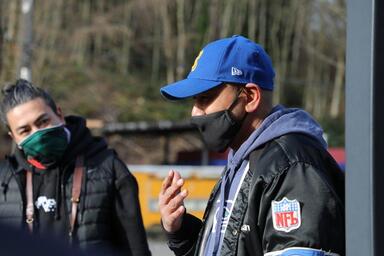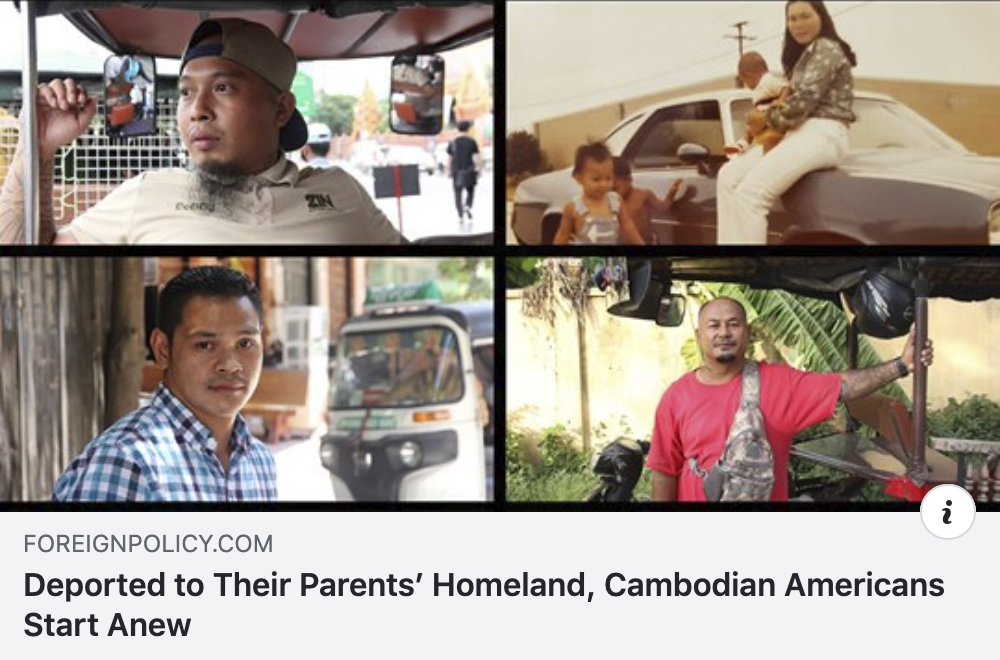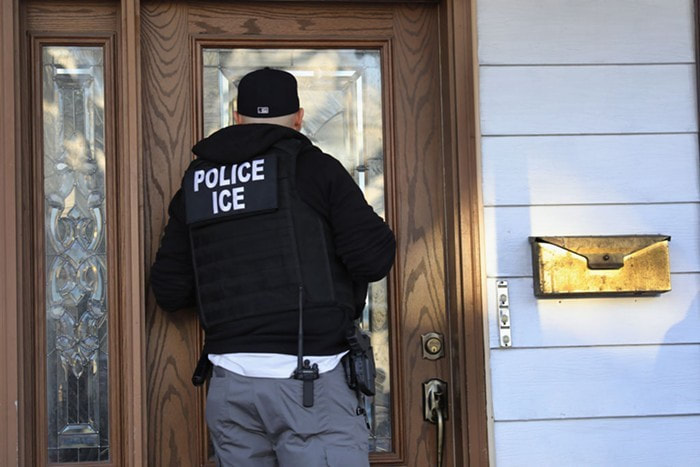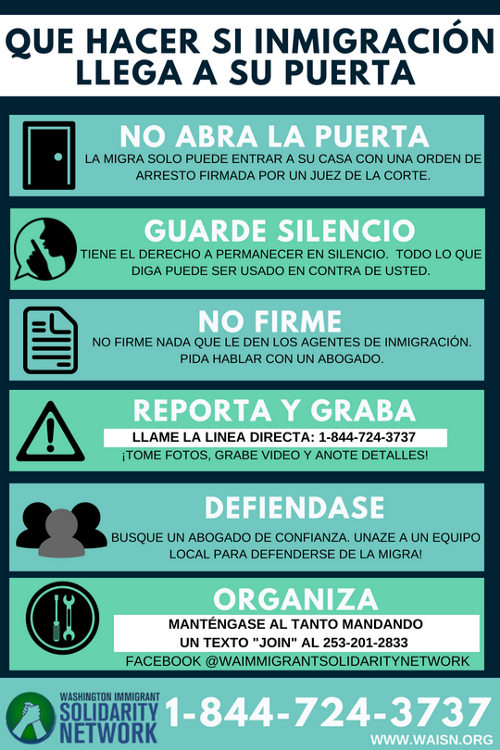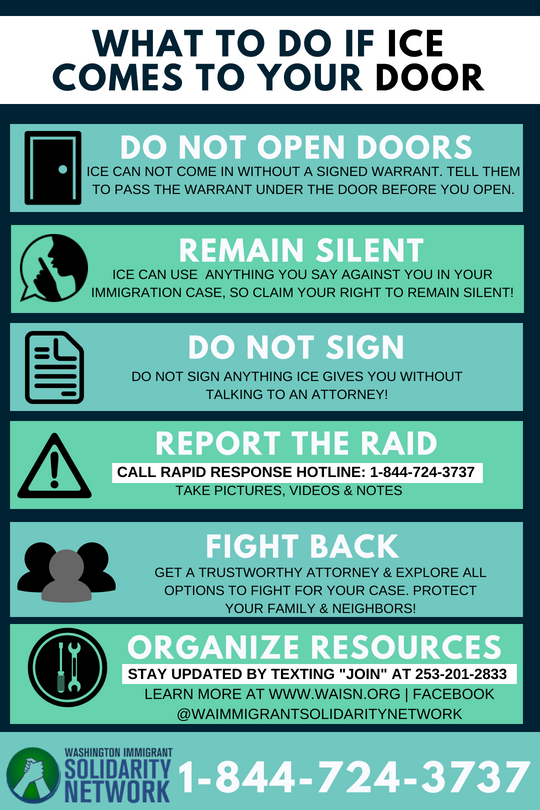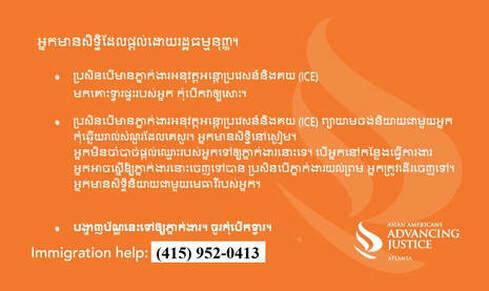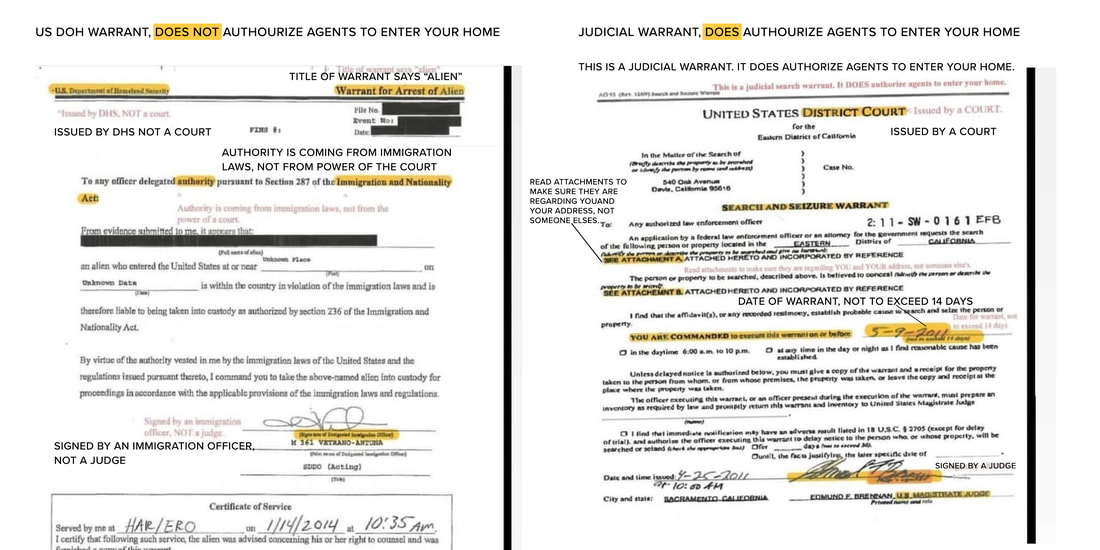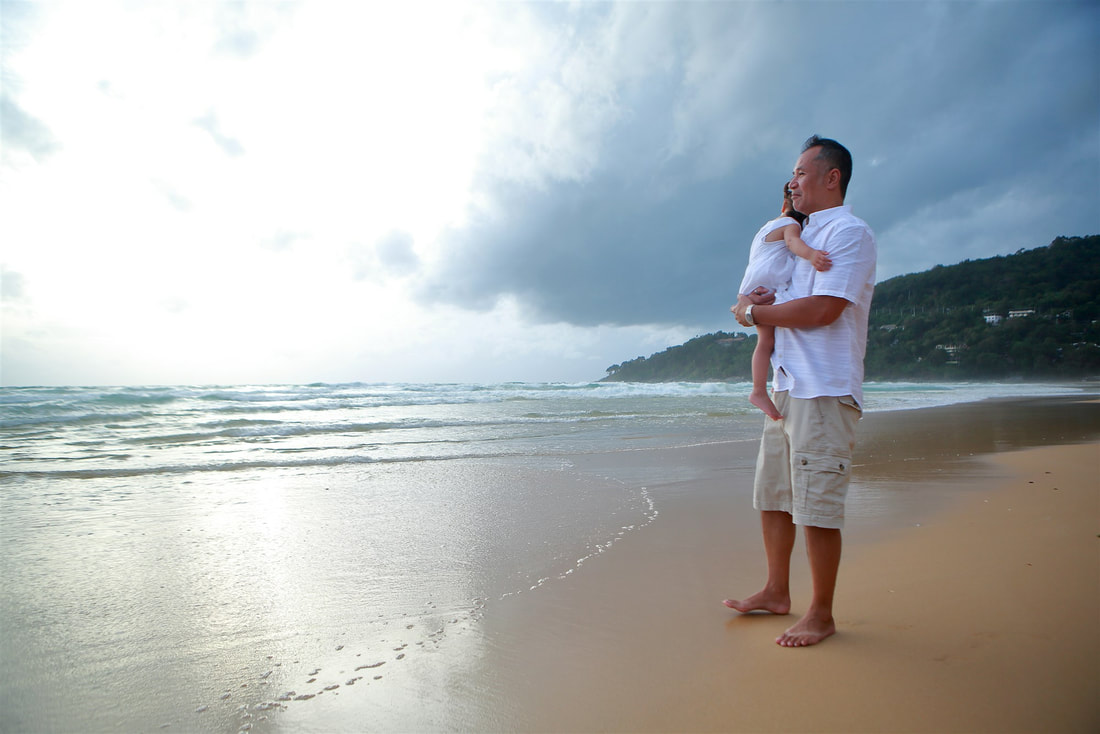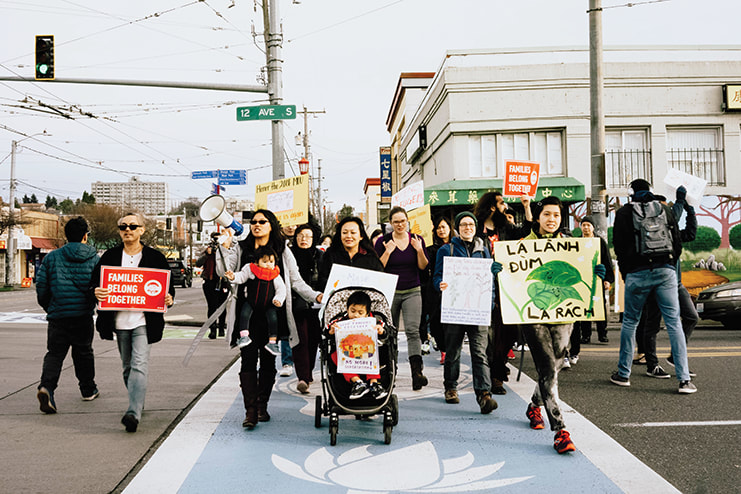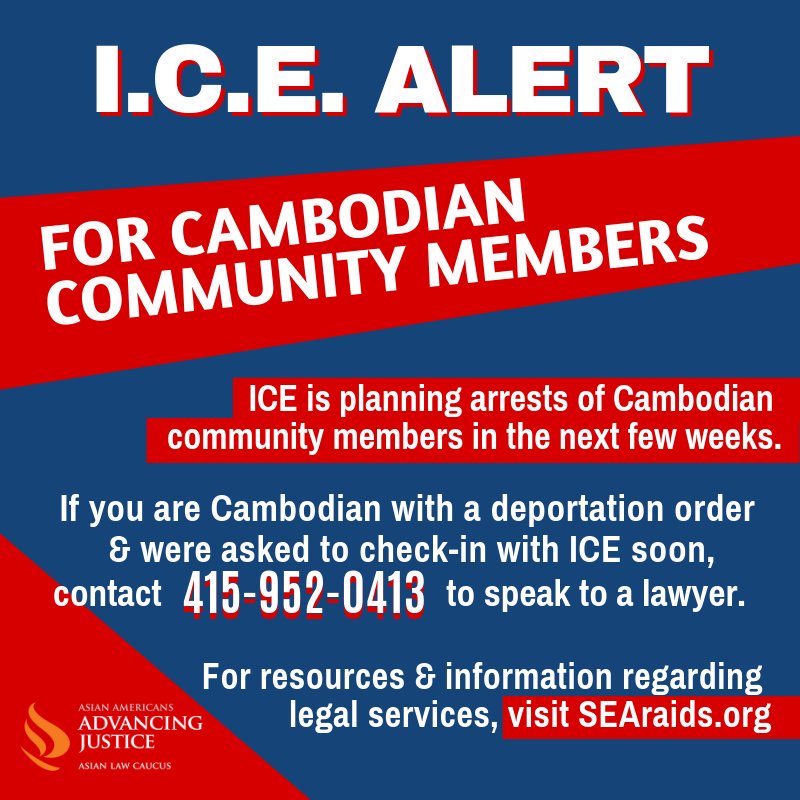|
In the 1980s, the largest refugee resettlement program in United States history took place. Over 1 million refugees for Southeast Asia, including Vietnam, Cambodia, and Laos, made their way to the U.S. For many of those refugees in Seattle, it was difficult to find a permanent home, especially those who fell into crime. Bill Radke speaks with Many Uch, an activist and organizer who's worked to fight deportation to Cambodia while facing deportation himself, and who is as of this month a U.S. citizen. Original story appears on: KUOW Photo by Stuart Isett, who's been documenting Many's journey. For more of Isett's photos visit To Be an American.
0 Comments
Local organizer Many Uch becomes naturalized US citizen after two decade journey |
| In between the day he first entered immigration custody and the day he walked out as a naturalized citizen, over 20 years had elapsed. In all those years, Uch would get married, purchase a home, and start a family. He went on to create relationships with elected officials and legal resources and began the journey of organizing his community. In the late 2000’s, he helped found Khmer In Action (K.I.A.), one of the first organizations to carry Southeast Asian deportation work in the Seattle-Tacoma area. In 2010, he was pardoned by Washington State Governor Christine Gregoire. However, because his conviction involved a firearm, the pardon didn’t provide relief from deportation. |
In 2015, he co-found FIGHT, an organization that works through restorative justice, helping provide resources and help towards re-entry for incarcerated community members.
In 2017, amidst the ramping up of attacks on refugee and immigrant communities by the Trump administration, Uch helped found KhAAG following a community rally by impacted families in which over a handful of community members were apprehended by ICE.
Amidst all the organizing, Uch had began to explore post-conviction relief for his case. It worked. Based on a constitutional error on his original plea, the prosecuting office agreed to a new sentence for Uch which didn’t carry mandatory deportation. That paved the way for Uch to apply for his citizenship.
In 2017, amidst the ramping up of attacks on refugee and immigrant communities by the Trump administration, Uch helped found KhAAG following a community rally by impacted families in which over a handful of community members were apprehended by ICE.
Amidst all the organizing, Uch had began to explore post-conviction relief for his case. It worked. Based on a constitutional error on his original plea, the prosecuting office agreed to a new sentence for Uch which didn’t carry mandatory deportation. That paved the way for Uch to apply for his citizenship.
| | After sending his application, checking his application status became a wake up ritual. Then one morning, things changed, I checked my UCIS account and it didn’t say anything,” said Uch. “Three or four hours later, my lawyer emailed me and said that I had gotten approved.” “Wow, thank you,” is the reply Uch sent to his lawyers upon learning that his application was approved. Asked what are some of the things you’d like to do, Uch replied, “I look forward to meeting my Dad for the first time in Cambodia.” |
PHNOM PENH, Cambodia—It wasn’t until Sam Nak was in handcuffs and leg irons, 35,000 feet over the Pacific Ocean, that reality finally sunk in: He might never get to go home.
Nak grew up in Providence, Rhode Island, where his family had been resettled as refugees when he was 6 months old. His parents had fled Cambodia’s Khmer Rouge regime in the 1970s. Nak, now 41, was born in a refugee camp in Thailand. While he was eligible after five years in the country, he never became a U.S. citizen: His family didn’t understand the process. Nak never gave the distinction much thought until he started having run-ins with the law. In 1999, after pleading guilty to selling marijuana to avoid prison time, Nak was given a deportation order. (U.S. immigration law states that noncitizens convicted of a wide range of crimes can be sent back to their native countries.) But Nak had no documents proving Cambodian citizenship, so he stayed in the United States for another 19 years.
Continue Reading>>
Nak grew up in Providence, Rhode Island, where his family had been resettled as refugees when he was 6 months old. His parents had fled Cambodia’s Khmer Rouge regime in the 1970s. Nak, now 41, was born in a refugee camp in Thailand. While he was eligible after five years in the country, he never became a U.S. citizen: His family didn’t understand the process. Nak never gave the distinction much thought until he started having run-ins with the law. In 1999, after pleading guilty to selling marijuana to avoid prison time, Nak was given a deportation order. (U.S. immigration law states that noncitizens convicted of a wide range of crimes can be sent back to their native countries.) But Nak had no documents proving Cambodian citizenship, so he stayed in the United States for another 19 years.
Continue Reading>>
On Sunday, Trump will direct Immigration and Customs Enforcement agents to round up and deport 2,000 immigrants who allegedly missed their day in court or who were ordered deported. They will also detain any other undocumented immigrants hanging around targeted immigrants at the time of the raid.
According to CNN, ICE plans to carry out the mass arrests in 10 cities, including Atlanta, Baltimore, Chicago, Denver, Houston, Los Angeles, Miami, New Orleans, New York, and San Francisco. The raids were originally scheduled for late June, but Trump delayed them for two weeks for reasons that remain unclear.
Seattle isn't on the list reported by CNN, but Monserrat Padilla, a coordinator with Washington Immigrant Solidarity Network (WAISN), says the organization is "very seriously concerned" that Seattle and other cities in Washington will be included in this weekend's raid. Padilla cites "huge red flags" WAISN members have heard on their hotline, and they're wary of funding allocated to ICE operations in the $4.59 billion spending bill Trump signed last week.
So, if you're an immigrant who might be targeted by ICE, or if you want to stand in solidarity with those immigrants, here's what you need to do to prepare.
According to CNN, ICE plans to carry out the mass arrests in 10 cities, including Atlanta, Baltimore, Chicago, Denver, Houston, Los Angeles, Miami, New Orleans, New York, and San Francisco. The raids were originally scheduled for late June, but Trump delayed them for two weeks for reasons that remain unclear.
Seattle isn't on the list reported by CNN, but Monserrat Padilla, a coordinator with Washington Immigrant Solidarity Network (WAISN), says the organization is "very seriously concerned" that Seattle and other cities in Washington will be included in this weekend's raid. Padilla cites "huge red flags" WAISN members have heard on their hotline, and they're wary of funding allocated to ICE operations in the $4.59 billion spending bill Trump signed last week.
So, if you're an immigrant who might be targeted by ICE, or if you want to stand in solidarity with those immigrants, here's what you need to do to prepare.
Be Aware of ICE's Hot Spots
• Work places: WAISN expects ICE to target restaurants, construction sites, and other areas where hands-on labor occurs. "Our risk analysis shows that places of work are on the top priority for raids," Padilla said.
• Courthouses: ICE has been arresting undocumented immigrants who show up for their court dates, as Crosscut reported back in April.
• Large apartment complexes where people with prior deportation orders live: "They come in searching for one person and end up taking the whole neighborhood," Padilla said.
Call the Hotline If You See Something
If you see any ICE activity, call WAISN’s hotline: 1-844-724-3737.
If you want to receive alerts about ICE raids in your area, text JOIN to 844-724-3737.
WAISN coordinates 25 rapid response teams in 32 counties across the state, and they've recently bulked up the defense tools available on the hotline.
If ICE is at your door, WAISN will dispatch a team trained to document deportation activity. In the meantime, Padilla says keep the door closed, remain silent, and don't sign any papers (which can be expedited removal papers). ICE officers sometimes use "administrative warrants" or "ICE warrants" in an attempt to enter private residences, but those warrants don't give them that authority. ICE can only enter if they have a "judicial warrant," which is a warrant signed by a judge. If they don't have that, then they can't enter without consent. That said, Padilla also says not to resist arrest, but rather to vocally state your rights and record the encounter.
Also note that under federal law, ICE agents may arrest someone with an administrative warrant, but cannot use it to conduct searches and seizures that require them to enter a home or vehicle.
Below is an example of an "administrative warrants" vs a "Judicial Warrant".
Using the hotline, people can also request accompaniment to court hearings and bond hearings, access WAISN's bond fund application (which will pay off bonds), and hook up with public defenders who are aware of the new laws that prohibit collusion between local law enforcement and ICE. "We can't guarantee stopping deportation, but our vision is that no one has to walk through this traumatic and painful journey alone," Padilla said.
Don't Spread Rumors on Social Media
Unsubstantiated rumors of ICE activity cause undue stress and harm to immigrants. Padilla says people will see an ICE truck rolling down the road, snap a photo, and then immediately write up an alarmist post on Facebook. Don't do that.
If you see ICE in the world at all, call the hotline and allow WAISN to verify the activity and then inform the community through their networks. Once confirmed, WAISN will hit you back and tell you to share the info with your networks if warranted.
Join A Rapid Response Team
Sign up for online training and learn how to respond to ICE activity in your neighborhoods. "We need bodies literally building defense lines," Padilla says. She wants all neighborhoods to have robust response teams, including places where people think they're not at risk, such as Upper Queen Anne. "In Columbia City people assumed there wasn't a whole bunch of need there, but someone was taken on their lunch break," Padilla said. "It's important for everyone in this moment, regardless."
Donate to the Fair Fight Bond Fund
The Fair Fight Bond Fund just pays bonds for immigrants ICE detains. Padilla says all donations go to paying off bonds (and none to the organization's administrative costs), and that all bond money from terminated cases goes back into the fund. Padilla estimates that 250 of the approximately 1,500 people locked up in the Northwest Detention Center in Tacoma are eligible to be bonded out but can't pay.
Unsubstantiated rumors of ICE activity cause undue stress and harm to immigrants. Padilla says people will see an ICE truck rolling down the road, snap a photo, and then immediately write up an alarmist post on Facebook. Don't do that.
If you see ICE in the world at all, call the hotline and allow WAISN to verify the activity and then inform the community through their networks. Once confirmed, WAISN will hit you back and tell you to share the info with your networks if warranted.
Join A Rapid Response Team
Sign up for online training and learn how to respond to ICE activity in your neighborhoods. "We need bodies literally building defense lines," Padilla says. She wants all neighborhoods to have robust response teams, including places where people think they're not at risk, such as Upper Queen Anne. "In Columbia City people assumed there wasn't a whole bunch of need there, but someone was taken on their lunch break," Padilla said. "It's important for everyone in this moment, regardless."
Donate to the Fair Fight Bond Fund
The Fair Fight Bond Fund just pays bonds for immigrants ICE detains. Padilla says all donations go to paying off bonds (and none to the organization's administrative costs), and that all bond money from terminated cases goes back into the fund. Padilla estimates that 250 of the approximately 1,500 people locked up in the Northwest Detention Center in Tacoma are eligible to be bonded out but can't pay.
As we observe World Refugee Day, we recognize the strength and resilience of our refugee community members who still strive for a better life.
Today, we'd like to share the good news of Mr. Sok Krouch, who received a governor's pardon and is now able to continue with his life without the fear of being separated from his family, community, and dignity.
Since the last round of I.C.E raids in Washington State, a team of community members, advocates, and lawyers were able to help reunite four of our community members with their families after being detained for months at the Northwest Detention Center.
Although we celebrate these impactful victories, our thoughts are with the 50+ Cambodian American community members who are scheduled to be deported in early July. After this round of deportations, we are preparing for another series of I.C.E Raids nationwide.
If you or someone you know has an order of removal, please get in touch for assistance immediately. It is important community members look into their options before being detained.
To be heard, we must continue to make noise and we are louder and stronger together as a community.
https://www.khaagwa.org/get-help.html
#refugeeresilience #worldrefugeeday #keepfamiliestogether #stopdeportation
Today, we'd like to share the good news of Mr. Sok Krouch, who received a governor's pardon and is now able to continue with his life without the fear of being separated from his family, community, and dignity.
Since the last round of I.C.E raids in Washington State, a team of community members, advocates, and lawyers were able to help reunite four of our community members with their families after being detained for months at the Northwest Detention Center.
Although we celebrate these impactful victories, our thoughts are with the 50+ Cambodian American community members who are scheduled to be deported in early July. After this round of deportations, we are preparing for another series of I.C.E Raids nationwide.
If you or someone you know has an order of removal, please get in touch for assistance immediately. It is important community members look into their options before being detained.
To be heard, we must continue to make noise and we are louder and stronger together as a community.
https://www.khaagwa.org/get-help.html
#refugeeresilience #worldrefugeeday #keepfamiliestogether #stopdeportation
BREAKING NEWS
Thursday, May 9th, 2019, One of our community members from Washington walked out of Northwest Detention Center and back into the arms of her children and family in time to celebrate Mother's Day.
In March, she was detained by ICE for a decades-old deportation order, potentially robbing her children of their sole guardian.
She spent the last couple months rotating from NWDC to the Houston TX area to be interviewed by the Cambodian consulate for travel documents towards her deportation and then back.
All the while, the Khmer Anti-deportation Advocacy Group of Washington (KhAAG) along with a network of family, friends, community organizers and legal advocates, worked diligently towards her release.
KhAAG is blessed to have the help and support of the:
And so many more who remained in lockstep with us throughout this process.
Going through deportation can seem lonely and hopeless. By coming together, we show our most vulnerable that they do stand a chance. And that they do matter.
Download the press release here.
Thursday, May 9th, 2019, One of our community members from Washington walked out of Northwest Detention Center and back into the arms of her children and family in time to celebrate Mother's Day.
In March, she was detained by ICE for a decades-old deportation order, potentially robbing her children of their sole guardian.
She spent the last couple months rotating from NWDC to the Houston TX area to be interviewed by the Cambodian consulate for travel documents towards her deportation and then back.
All the while, the Khmer Anti-deportation Advocacy Group of Washington (KhAAG) along with a network of family, friends, community organizers and legal advocates, worked diligently towards her release.
KhAAG is blessed to have the help and support of the:
- Northwest Immigration Rights Project (NWIRP)
- Seattle Clemency Project
- Law Offices of Foster Pepper
- Advancing Justice-Asian Law Caucus (ALC)
- Asian Prisoner Support Committee (APSC)
- Southeast Asian Freedom Network (SEAFN)
- Central & SE Seattle Interfaith Migrant Rights Network
- La Resistencia
And so many more who remained in lockstep with us throughout this process.
Going through deportation can seem lonely and hopeless. By coming together, we show our most vulnerable that they do stand a chance. And that they do matter.
Download the press release here.
Veasna Meth (pictured here with his family) is expected to return to the U.S. Wednesday, Feb. 27, 2019, from Cambodia, where he was deported to in 2014. Meth received a removal order in 2013 due to a 2008 burglary conviction. Courtesy of the Meth family
Five years after he was deported to Cambodia, Veasna Meth is expected to return home to California on Wednesday, becoming what advocates say will be the second Cambodian deportee to return to the United States.
Continue Reading
Continue Reading
Sothy Kum with his daughter. Courtesy of Lisa Kum
By Agnes Constante, NBC NEWS
Every day, Sothy Kum wakes up at 6:30 a.m. to talk to his wife and their 2-year-old daughter in Wisconsin, more than 8,000 miles away from his condo in Cambodia, where he's lived for the past nine months.
It's 5:30 p.m. then in the Midwest, and Kum's wife is typically just leaving work. They stay on the line for three to five hours until their daughter's bedtime.
Those conversations have become a lifeline for Kum, 44, since he was deported to Cambodia last April. Hearing the voices of his wife and daughter helps him cope with depression as he adjusts to life in a country he left when he was 2.
“I'm still not used to it,” he said. “I'm still scared of the traffic. I can't find any peace here.”
Read More: NBC NEWS Raised in the U.S. and deported to Cambodia, refugees struggle to build a new life
Every day, Sothy Kum wakes up at 6:30 a.m. to talk to his wife and their 2-year-old daughter in Wisconsin, more than 8,000 miles away from his condo in Cambodia, where he's lived for the past nine months.
It's 5:30 p.m. then in the Midwest, and Kum's wife is typically just leaving work. They stay on the line for three to five hours until their daughter's bedtime.
Those conversations have become a lifeline for Kum, 44, since he was deported to Cambodia last April. Hearing the voices of his wife and daughter helps him cope with depression as he adjusts to life in a country he left when he was 2.
“I'm still not used to it,” he said. “I'm still scared of the traffic. I can't find any peace here.”
Read More: NBC NEWS Raised in the U.S. and deported to Cambodia, refugees struggle to build a new life
Over 100 people rallied at Hing Hay Park January 11 to oppose a new policy from the Trump administration that would allow thousands of Vietnamese refugees to be deported. This could include 1,000 people in the Seattle area •
Photo by Auriza Ugalino
Photo by Auriza Ugalino
via the International Examiner
Many Uch, a Cambodian community member at the march, has been fighting deportation for the past 22 years. “A lot of the Khmer folks that I know come from low-income neighborhoods and get caught up in the school to prison pipeline,” Uch said. “It was tough growing up – we’d get into trouble. Unfortunately, for most people when they get into trouble they don’t get deported, but for refugee communities, for immigrant communities, we get separated from our family.”
Read more: "Home is Here"
Many Uch, a Cambodian community member at the march, has been fighting deportation for the past 22 years. “A lot of the Khmer folks that I know come from low-income neighborhoods and get caught up in the school to prison pipeline,” Uch said. “It was tough growing up – we’d get into trouble. Unfortunately, for most people when they get into trouble they don’t get deported, but for refugee communities, for immigrant communities, we get separated from our family.”
Read more: "Home is Here"
Starting 1/7/19, another round of ICE raids on Cambodians will begin. We're expecting close to 100 arrests over a two week period across the country. Here's information on how to prepare:
Link to Anoop Prasad's tweet: @Anoop_alc TWEET
1) If you have a check-in coming up in the next two weeks, call or text us at (415) 952-0413. Leave a message and let us know the date of your check-in. We'll get in touch. Request your records TODAY: http://searaids.org/request-your-file
2) If you're going to a check-in, bring someone with you. Give them your keys, wallet, and phone before you go in. Write down or memorize important phone numbers. If you don't come out, have them call us right away. (415) 952-0413
3) Make sure that everyone in your house knows to NOT open the door for ICE. More information on your rights if ICE comes to your door are available at: http://searaids.org/know-your-rights/
4) Be wary of unusual cars lurking on your block. ICE uses unmarked American cars. Sometimes instead of knocking, ICE waits for people to leave for work to arrest them.
5) Even though this is terrifying, know that the community has your back. It's possible to fight deportation. #RefugeeResilience
Link to Anoop Prasad's tweet: @Anoop_alc TWEET
1) If you have a check-in coming up in the next two weeks, call or text us at (415) 952-0413. Leave a message and let us know the date of your check-in. We'll get in touch. Request your records TODAY: http://searaids.org/request-your-file
2) If you're going to a check-in, bring someone with you. Give them your keys, wallet, and phone before you go in. Write down or memorize important phone numbers. If you don't come out, have them call us right away. (415) 952-0413
3) Make sure that everyone in your house knows to NOT open the door for ICE. More information on your rights if ICE comes to your door are available at: http://searaids.org/know-your-rights/
4) Be wary of unusual cars lurking on your block. ICE uses unmarked American cars. Sometimes instead of knocking, ICE waits for people to leave for work to arrest them.
5) Even though this is terrifying, know that the community has your back. It's possible to fight deportation. #RefugeeResilience

